The presidential candidate of the Accord Party, Prof Chris Imumolen, shares his thoughts with OLUWAFEMI MORGAN on his presidential ambition and the forthcoming elections, among others
Why are you vying for the position of the president instead of starting your political career from perhaps the Senate or House of Representatives?
I don’t really want to build a political career; I am coming into the race to rescue and revamp the country because I know what it takes; I know the problem of the country and I know how to solve it. One of the problems of Nigeria is leadership; the truth is that I already have the experience to govern a country, having built an organisation that has over 10,000 staff members all over the world, and having mentored a lot of people. I am the CEO of Global Wealth Systems. I have thousands of members all over the world; I have influenced millions of people and I have supported governments, states and countries. I have programmes in Togo, Ghana and Sierra Leone supporting the governments of those countries. If I can do that, then I can do more in my country. We need the right people in leadership positions, not just those who have a political mindset.
The Accord Party is not regarded as a nationwide party. How is it evolving?
By its structure, you know that Accord has been a peaceful party with very little problem; that by itself has allowed the party to have time to build silently. If you look at the Osun State election, Accord came probably third or fourth after the Peoples Democratic Party and the All Progressives Congress. If you look at other (off-cycle) elections, Accord might not have won, but look at the position it occupied, probably third or fourth position. We have people contesting various seats and political positions in Accord. So, that by itself has evolved and given the party and me a lot of support. We have a lot of support groups aligned with the vision of the party to help it achieve its mandate.
In what parts of the country will you say that the Accord Party has its strongholds at the moment?
In the South-South, in Rivers State, in Akwa-Ibom State, in Lagos State, in Oyo State, in Benue, Zamfara and Kebbi states. In Zamfara State, for example, my vice-presidential candidate (Bello Maru) contested as a governor in the state (in 2019). He emerged second. We have about 12 states and some strong parties in the North-West. That is not to say that we do not have a presence in other states or that we are not doing well in other states. We have a strong footing In Edo State as well.
Some say you went to the Accord Party because there is no opportunity for you to become the presidential candidate in a big party like the All Progressives Congress. How will you react to this?
There was a time everybody was tired of the APC and the PDP and many Nigerians said they wanted leaders from any political party apart from these two parties. Nigerians believed that these two parties led Nigeria to where it is today. Nigerians were looking for an alternative at the time. So, even if I was given a free ticket at the time, I would have done some wide consultation before even accepting it, because that was the euphoria at the time. It is not necessarily true that I couldn’t find my way to win a ticket from a bigger party; it is because we wanted to provide Nigeria with a true alternative.
Entrepreneurship is an area where you have a comparative advantage. How will you rate the current regime of the President, Major General Muhammadu Buhari (retd.), in the areas of industrialisation, employment and the ease of doing business in the country?
It has performed poorly; you have 133 million Nigerians who are currently below the poverty line under this regime; so, there is no gainsaying that the regime has failed in delivering its mandate to Nigerians. Any leader that must solve Nigeria’s problems must be one that will quickly and aggressively drive industrialisation and create employment for Nigerian youths. We have over 60 per cent of Nigerian youths who are unemployed or underemployed. When you have a nation with such an unemployed population, you have a nation that is highly unstable. So, the regime has performed very poorly in employment and we have statistics that have shown all of these.
The nation’s debt has risen to N42tn. Do you think it is right for the Buhari regime to continue to borrow before leaving office?
You don’t need to borrow, you need to think outside the box; critical thinking. There are public-private partnership programmes, there are wealth creation programmes, there are investments that can be vested in the people to create a situation where your people become prosperous and you recover more taxes. Unfortunately, we are in a country where most of our resources go to personal pockets because we don’t have a system to capture revenue. Many people complain that Nigeria has a revenue generation problem; yes, we do, because we are not generating adequate revenue.
However, I do not support that we should increase the hardship on the people in a bid to increase revenue. What we must first do is to ensure that we create a system to block the loopholes we already have in our revenue, especially when they are being moved out of our coffers. If we must borrow, we must borrow for capital projects; we must ensure that what we are using the funds for is meant for the improvement of lives. What we have seen in this regime is that a lot has been borrowed but it is not reflected in the economic growth of the people, and we have gone beyond our threshold for borrowing as a nation. We have put our children and grandchildren in debt. I think that this government, especially before handing over to the next administration, which I believe should be me, should cease borrowing. We have a lot of natural resources, we have human capacity development that can be harnessed and trained, and we have Diaspora remittances that have not been properly tapped. We have private-public partnerships that can generate huge funds for Nigeria; we also have many things, which I will not want to open the box until I become the president.
Do you think removing fuel subsidy will solve Nigeria’s economic problems?
In the first place, why do we subsidise fuel? It is because we do not have enough products from the resources that we are blessed with as a nation. Why do we not have enough resources? It is because of corruption. The subsidy itself has become an avenue for very few Nigerians to enrich themselves, and these are also the people who control the government, influence the government, and if possible, bribe the government to make decisions to favour them. What we must do is to encourage local production, fix our four refineries and also encourage private investors in that industry. We must begin to liberalise policies that will help private investors to set up modular and small-scale refineries in the next two years, so that we can have more DPK (kerosene) and AGO (petrol).
We also need to diversify energy utilisation to bring energy investment; we must begin to look at environmental-friendly processes for generating energy so that we can have sustainable and renewable energy, as well as alternative energy sources that will reduce dependency on fossil fuel. These are part of the things we must do as a nation, and that will give us the impetus to begin to look at the total removal of subsidy; we are spending a lot on subsidy. Again, I believe that a leader must look after the welfare of the people, because we know that transportation and logistics play a huge impact in the life of Nigerians in rural and urban communities. If transport fares go up, it will affect other goods and services leading to inflation. However, we must totally stop subsidy, and that can only be possible if we increase local production.
What kind of policy will you be pushing to the National Assembly to revamp the education sector?
I think that Nigeria’s educational system is one of the worst in the world. What we must do is to rejig our curriculum to make sure it is targeted at training Nigerians to solve practical problems. Our curriculum at the moment is theoretical; we must begin to take a look at it. Then, training and retraining of the lecturers is important. When was the last time that our lecturers had a retraining programme? In primary, secondary and tertiary institutions, they must be trained; those who impart knowledge to our children and the knowledge that will help our children impact the society must be retrained.
Motivation and welfare of staff is also very key; the era of strikes in primary, secondary and university levels should be outdated. We must begin to make the welfare of our teachers and lecturers something of utmost priority. Again, we must engage private investors in this field. We must also begin to liberalise the way people obtain licences for universities so that more private universities can be established to cover the loophole and the lacuna we have in admissions into the universities. Every year, we have over 1.5 million people writing the Unified Tertiary Matriculation Examination, the universities can only admit over 300,000. You have a lot of Nigerians schooling outside Nigeria.
You talked about the worrisome level of poverty in the country. How do you hope to tackle this given that many poor Nigerians have experienced failed promises from their leaders?
Number one is education; you cannot reduce poverty by giving money alone, or access to funds; no, you must provide knowledge. Knowledge is key. Once we are able to improve our educational system, technical education, and provide proper financial business skills to Nigerians, we would have achieved a huge step in tackling poverty. We are going to create a system across the 774 local governments called leading points; we will also create a ministry called the Family Ministry, where families will be empowered through wealth creation programmes. The government will aid e-commerce; there will be a reward for innovation, and we are going to create jobs all over Nigeria, and pull Nigeria out of poverty in the next two years through a lot of initiatives that we will be bringing on board.
The exchange rate where the naira gets weaker on almost on a daily basis is disturbing to Nigerians; what will you do to strengthen the naira if you are elected the president?
The need for dollars is huge because we are not exporting. Every manufacturer, every seller and schools now require dollars. Even our lifestyle has changed; some Nigerians now order pizza from the US. So, we must begin to reduce dependency on foreign goods and encourage citizens to adopt local production. We must begin to look at our international remittances, our crude oil sales, cocoa and others. We can make more than N20bn yearly from the exportation of gold alone. We can make more than N22bn from cocoa exports. So, we must ask; how do we quickly take advantage of the natural resources beyond the crude so that they can also earn for us foreign exchange that will complement the foreign exchange from oil? With that, we will begin to see a huge drop in the exchange rate.
The elections are around the corner and the Independent National Electoral Commission has expressed fear that insecurity may disrupt the polls in some states of the federation. What is your take on this?
Are you aware that Nigeria has less than 350,000 security men (the police and others), and we have 176,000 polling units? That means we may not have enough security men to even man the polling units. So, if there are some polling units left unmanned, it becomes a free-for-all. We may have security challenges and I believe that the security agencies will be looking at that. So, we need to recruit more security volunteers and ad hoc security workers who will help to cushion the deficit in security. Looking at the electronic means of election at this time, it is a good development that we are moving from the analogue way to the digital. Of course, there will be challenges, but I believe that it will be an election that will be largely peaceful.
Having visited President Olusegun Obasanjo for endorsement, why do you think that he saw Peter Obi as a better choice for the presidency?
I think Obi and Obasanjo have had a long standing relationship before now; Obi was a governor and worked under (President Goodluck) Jonathan as economic adviser; Obi worked with Okonjo-Iweala, who was a close ally of Obasanjo. My visit to Obasanjo was not for endorsement, it was to know why they were unable to solve some of the problems they were confronted with, especially power. Countries like Togo, Benin Republic, Ghana and other smaller countries around us have 24 hours power supply; what is the problem? I was not able to get answers. I respect him; he has done his best, although he was not able to solve our problems. People of such a generation still look in that same line. They may look at me and say I have a bright future. Obasanjo was head of state at 39; I am 39. He has the right to choose and I respect his opinion.
There are reports that some political parties are in merger talks with the APC and its presidential candidate, Asiwaju Bola Tinubu. What is your take on such a last minute move?
I think this is a report in the media; we have yet to see such, but for our party, we are not merging; we are going to the polls. Merging will affect the psyche of the Nigerian youths; they need to have a renewed hope and they need to know that they have leaders who will not give up whether they win or lose. We are here to create a standard that every Nigerian youth will follow.
Source: The Punch

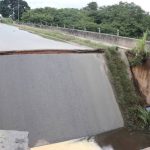

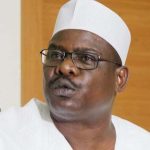
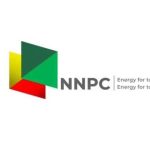
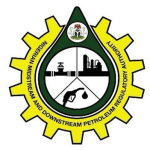
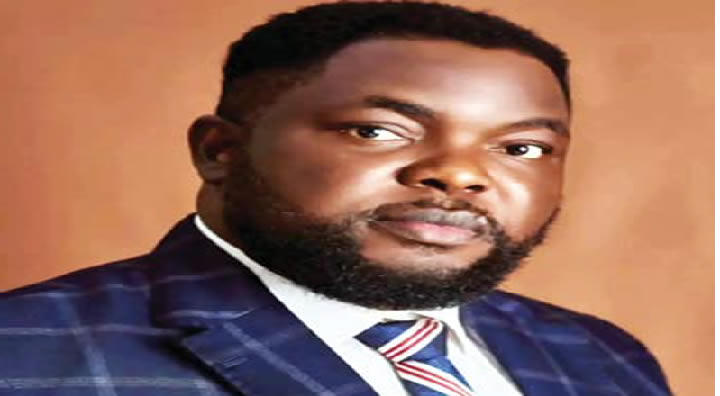
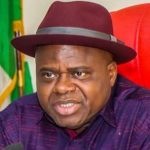
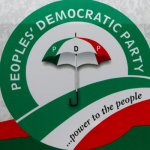
Very interesting points you have noted, thanks for putting up.Raise your business